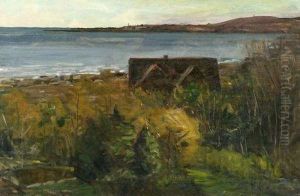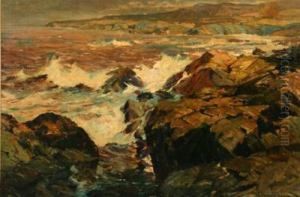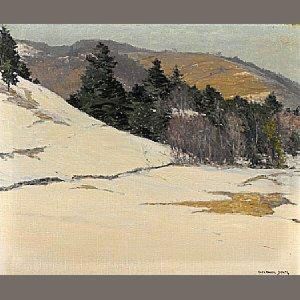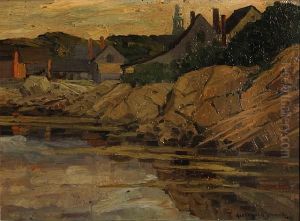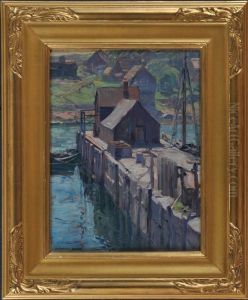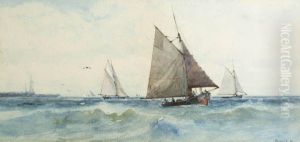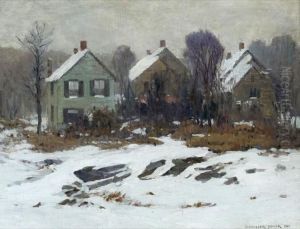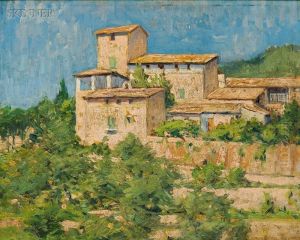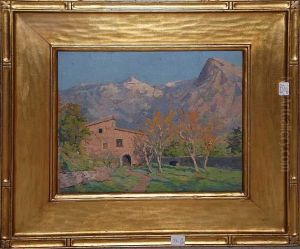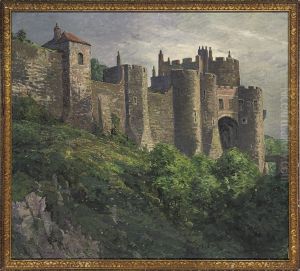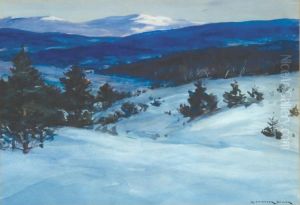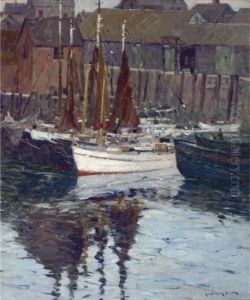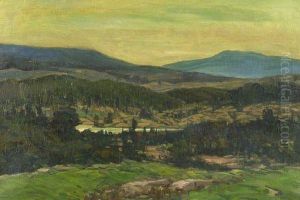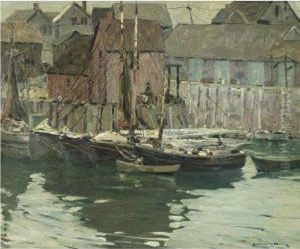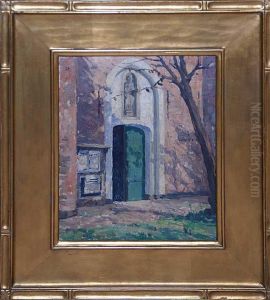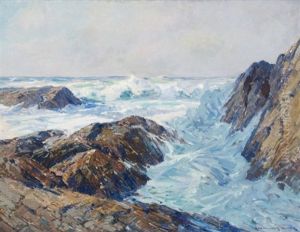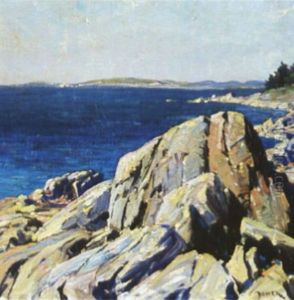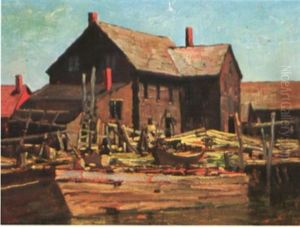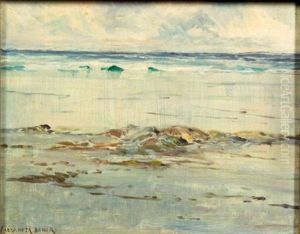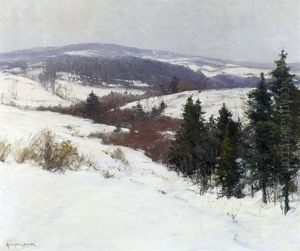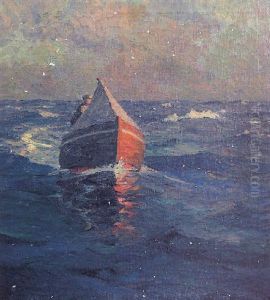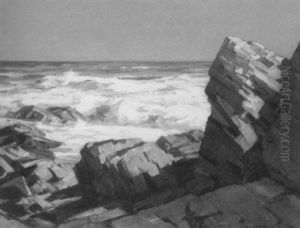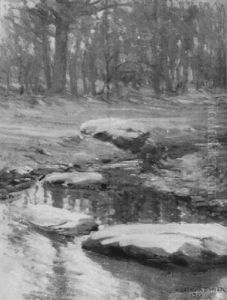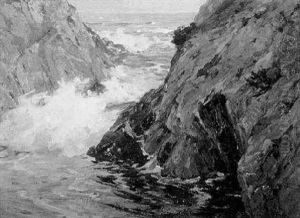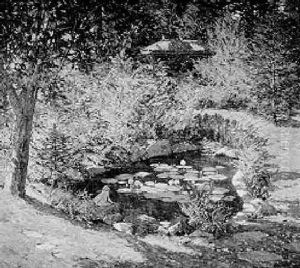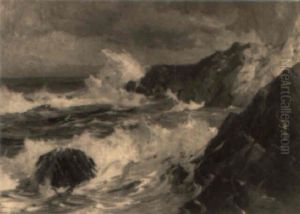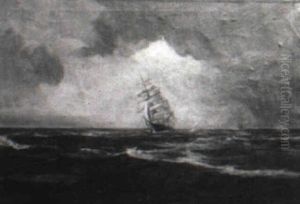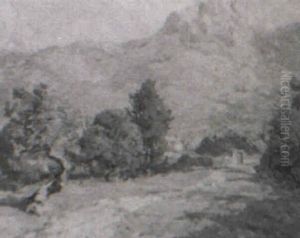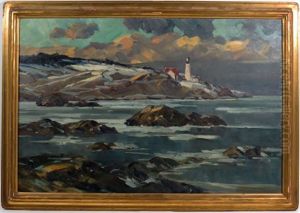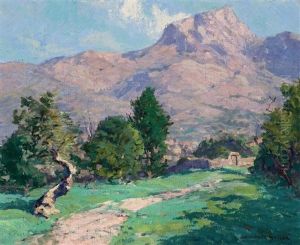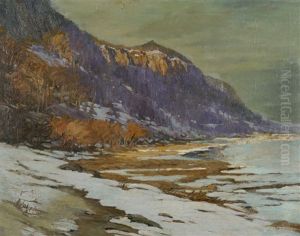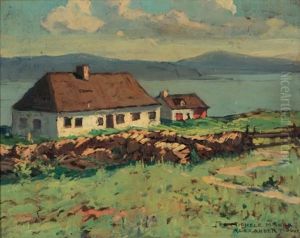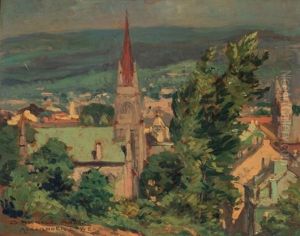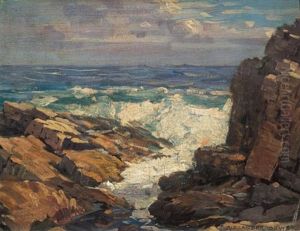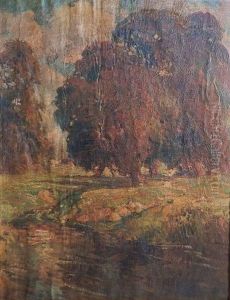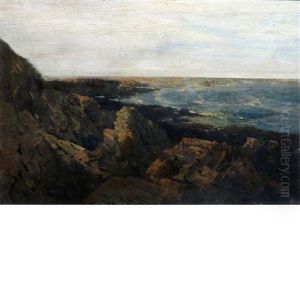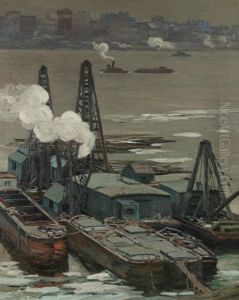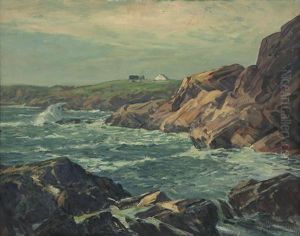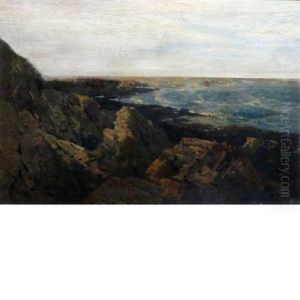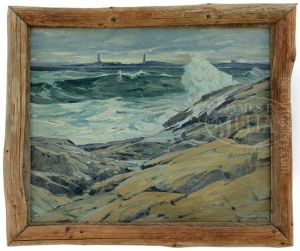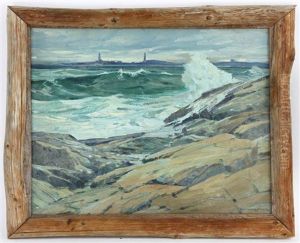Alexander Bower Paintings
Alexander Bower was an American painter known for his landscapes, particularly those capturing the essence of New England's rural and coastal scenery. Born in 1875 in Patterson, New Jersey, Bower developed an early interest in art which led him to pursue his passion through formal education. He studied at the Art Students League of New York, where he was influenced by the teachings of prominent artists of the time.
Bower's work is characterized by his ability to capture light and atmosphere, traits that made his paintings resonate with the beauty and tranquility of nature. He was particularly adept at depicting the changing seasons of the New England landscape, from the lush greenery of summer to the vibrant foliage of fall. His coastal scenes, often filled with serene views of harbors and fishing boats, reflect a deep appreciation for the maritime life.
Throughout his career, Bower was an active participant in the American art scene. He exhibited his work at various institutions, including the National Academy of Design and the Pennsylvania Academy of the Fine Arts. His paintings were well received by both critics and the public, earning him a respectable place among the American landscape painters of his time.
In addition to painting, Bower was also dedicated to art education. He taught at several art schools, sharing his knowledge and passion for landscape painting with the next generation of artists. His influence extended beyond his own work, contributing to the development of landscape painting in America during the early 20th century.
Alexander Bower passed away in 1952, leaving behind a legacy of serene and evocative landscapes that continue to be appreciated for their contribution to American art. His paintings are part of collections in several museums and galleries, where they are celebrated for their portrayal of the American landscape's beauty and diversity.
